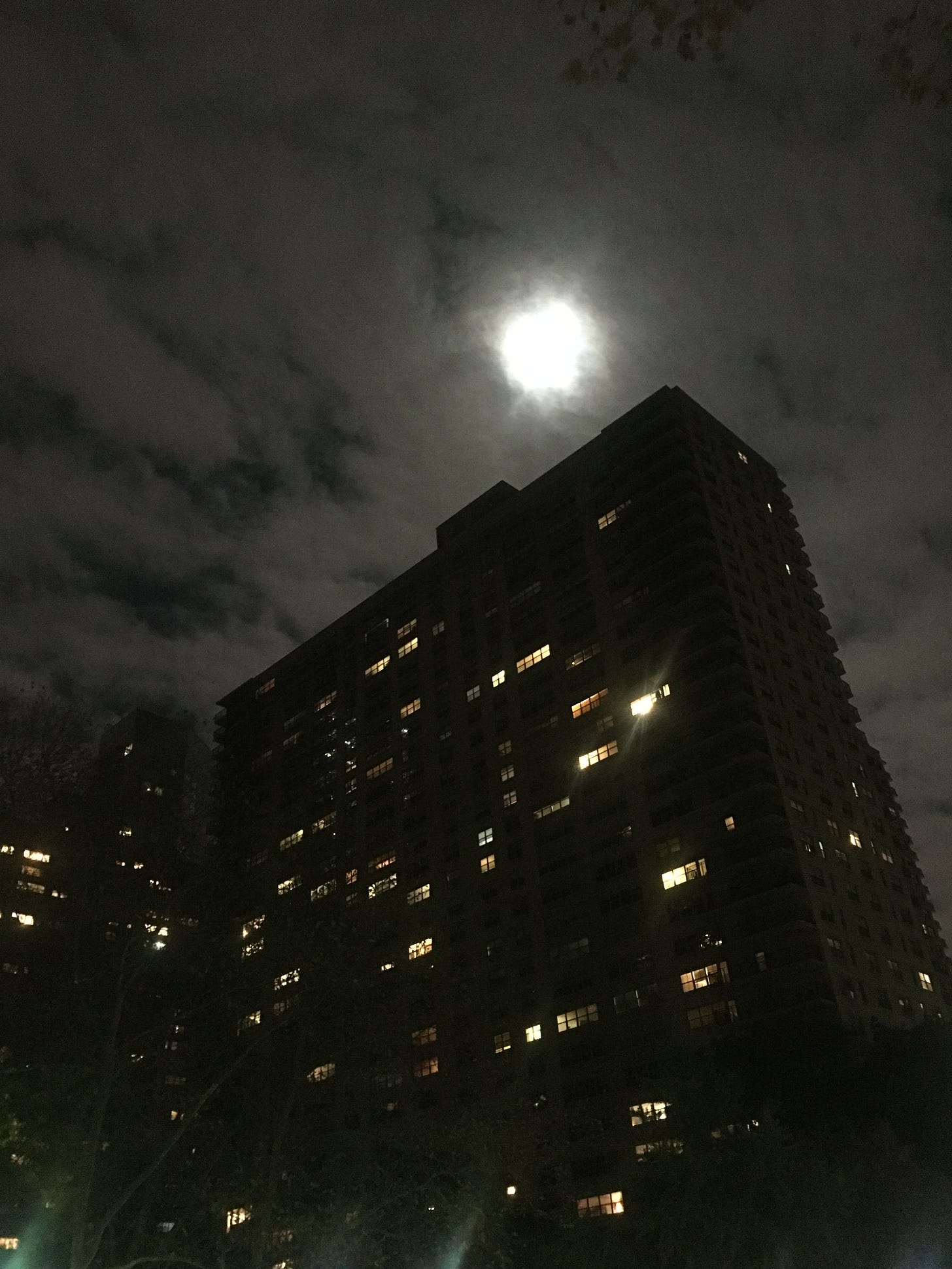Namaste,
We are on the other side of the Autumnal Equinox. I hate to break it to you but each day is going to become a little shorter. By seconds and minutes. I’m sure you can already notice it.
What is an equinox exactly?
An equinox is one of the only two days — the other is the vernal or spring equinox — when the sun is directly above the equator dividing night and day into equal portions.
The sun got me thinking about the moon which got me thinking about how Ayurveda informs us about them.
Sun and Moon: Ayurveda’s Take on Our Celestial Guides
When you think of the sun and moon, you might picture a few things: golden sunrises, lunar phases, or maybe your morning coffee routine kicking in as the sun hits your face. But in Ayurveda, the relationship between these two celestial bodies goes way deeper than just beautiful moments in the sky. Both the sun and moon play essential roles in our health, vitality, and emotional balance.

The Sun: Our Inner Fire starter
In Ayurveda, the sun isn’t just something we lather sunscreen for – it’s associated with Pitta dosha, the energy of heat, transformation, and metabolism. Think of the sun as the fire that powers our internal furnace, known as Agni. Agni is responsible for everything from digesting our meals to processing thoughts and emotions. A balanced Agni equals strong digestion, sharp mental clarity, and an active, vibrant life. An imbalanced one? Not so much – cue indigestion, irritability, and the occasional stress meltdown.
But the Ayurvedic sun story gets even better:
1. Solar Energy in Our Body: Ayurveda teaches that the sun’s energy is stored in our body through Agni, which manifests not just in our stomach (the “digestive fire”) but also in our cells and even our minds. Without enough solar energy, we might feel lethargic, unmotivated, or even a little gloomy – much like that mid-winter slump when the sun’s been MIA for days.
Note to self: Ayurveda just won’t let me sleep in. Here’s another reason why it is important to wake up early.2. Balancing with the Sun: Ayurveda suggests we align with the sun’s natural rhythms. Rising with the sun (hello, early mornings!) is considered ideal for tapping into the sun’s active energy. Starting your day before sunrise is a way to harness fresh solar energy and keep that Agni strong all day long. Plus, it gives you a few extra moments of peace before the world starts buzzing.
The Moon: The Calm Keeper

While the sun is all about heat, intensity, and transformation, the moon balances things out with its cool, calming presence. In Ayurveda, the moon governs Kapha dosha and has a connection to Ojas – the vital essence that governs immunity, stability, and mental calm. Think of Ojas as the body’s “essence” that keeps us resilient, both physically and emotionally.
Here’s why the moon matters so much:
1. The Moon’s Soothing Influence: Just as the moon controls the tides, it has a profound influence on our emotional and mental state. Ayurveda teaches that the moon’s cool, steady energy helps counterbalance the heat and intensity of Pitta (which often gets aggravated by the sun). It’s no coincidence that many people find themselves feeling calmer and more reflective under moonlight – that’s the Kapha energy at work.
2. Nurturing Ojas with the Moon: Ojas is said to be nourished by the cooling, peaceful energy of the moon. It’s what keeps us feeling safe, grounded, and stable. Good Ojas means strong immunity, sound sleep, and the ability to stay cool under pressure. Ayurveda encourages practices like moon-gazing, night-time cooling foods (think coconut, cucumber, and milk), and calming rituals to help build Ojas. The idea is to balance the sun’s intensity with the moon’s nurturing energy.
3. Moon Cycles and Our Emotions: Ayurveda also recognizes the impact of the lunar cycles on our emotional states. The full moon is often linked to heightened emotions – and not just in folklore! Ayurveda suggests this is when our Ojas is at its peak, making it a great time for reflection, self-care, and spiritual practices. On the flip side, the new moon is seen as a time for renewal, making it a good period for detoxing, resting, and resetting.
Note: If you are unfamiliar with some terms I used in this article like Pitta, Kapha and Agni, please refer to my previous article - https://allthingsfood.substack.com/i/144106768/vata-pitta-kapha
Thank you for reading. I appreciate your time and attention. In the month of October and November, I would like to write posts on topics that you suggest. Please let me know in comments.





We take these concepts for granted and I am so glad to know how they are so important in our lives. Thanks for this knowledge you gave me in this article.
These concepts fit so well with my particular preferences. I have always been a night person. And I have always favored cool, calming atmospheres. I admit, however, that I am at my best when I get going before sunrise in preparation for a morning exercise class. I am making more of an effort to stick to this routine on days that do not include a morning appointment so that my circadian clock can readjust to a consistent rhythm. It's definitely a work in progress. My clock has been all over the place for some time now.